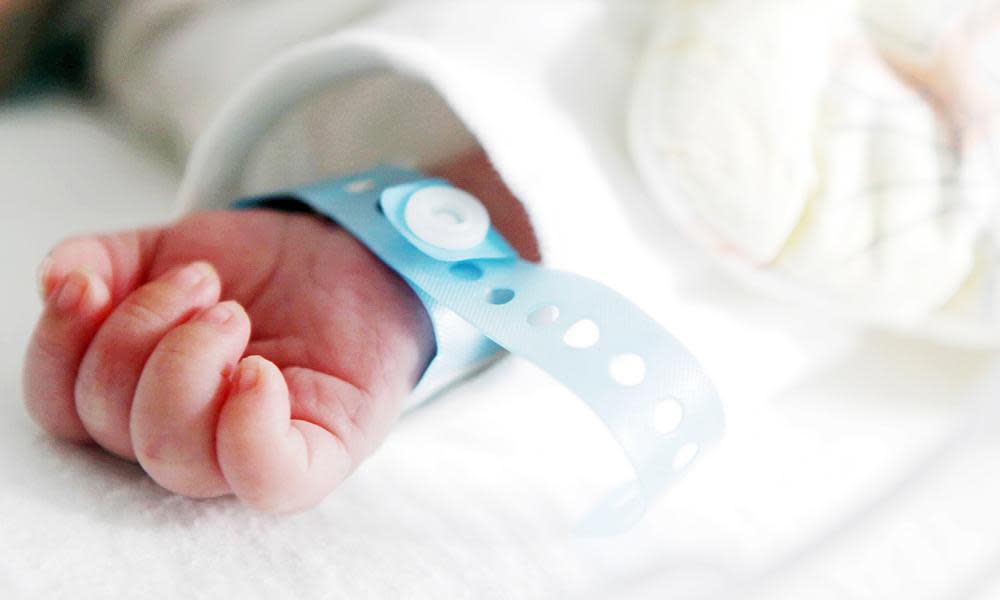Babies being removed from mothers during remote hearings – report

New mothers are having their babies taken into care during remote video and phone hearings from hospital, according to a report on justice during the coronavirus pandemic.
Parents are also joining online proceedings from home – often without adequate technology or support – when life-changing decisions are made about their children, the study commissioned by the president of the family division of the high court, Sir Andrew McFarlane, reveals.
Almost half of parents and relatives involved in virtual family court hearings during the crisis said they did not understand well what was happening, analysis by the Nuffield Family Justice Observatory concluded. Nonetheless, most professionals believed the system was working smoothly while delivering fairness and justice.
The report is designed to show a determination to be transparent about how family courts have adapted to remote working even in the most sensitive cases, including child custody and domestic abuse. It records instances of a mother self-harming during hearings, litigants appearing remotely in their pyjamas or while still in bed, and a judge taking a home delivery.
Even before the Covid pandemic struck in March, there was a debate about whether remote hearings – which were rare in family courts – delivered justice. Deep cuts to legal aid mean that since 2013, many litigants are no longer represented in family courts. Heavy workloads were made worse by the months-long closure of courts.
The report says problems experienced included “parents taking part in hearings remotely alone and from their homes, lack of communication between parties and their legal representatives”, and communication difficulties during hearings.
Most parents joined by phone rather than video link. Those who needed an interpreter or who had disabilities faced particularly severe challenges.
The most difficult cases were those in which social services believed babies needed to be taken into care under an interim order shortly after birth. They usually involved a mother joining the hearing by a phone from hospital. Previously they were more likely to have been represented by a lawyer in court.
“There is nothing fair about a remote hearing which requires you to remove a newborn baby from its mother,” one judge commented. “Remote hearings do not enable you to show empathy.”
A barrister told researchers: “I was required to represent a mother who was in hospital having given birth where removal was sought. She had no support, and she took part by phone.”
The report says “mothers have frequently not been able to have any physical contact with their babies following their removal” during the pandemic because of fears over infection.
One judge expressed significant reservations about remote hearings for such sensitive cases. “Removing children and making major decisions, eg on contact, can have … lifelong consequences. Notwithstanding everyone’s best efforts, remote parties cannot sometimes be adequately engaged … I have real misgivings about how fair it is and how fair it is felt and seen to be.”
Another remarked: “I worry about making orders which may be very distressing to a participant, eg the removal of their child. In court, they’d at least have a lawyer with whom they could grieve, rant, consider appeal and have support. By phone or video, they may be in their bedroom, alone and in despair, perhaps with the child and now awaiting a visit from a social worker.”
Among other responses was one from a judge who said: “My morale has massively improved since I started doing [physical] hearings again.” Upholding the authority of the family court was also considered harder to sustain online. One magistrate heard a case where a litigant was plastering.
There were more positive reactions, with some lawyers believing geographical separation between feuding parents helped. One barrister observed: “It has been easier to bring parties and advocates together who are geographically distant from each other without the need for extensive travel or exposure to possible Covid-19.”
Another said: “The fact that hearings are now subject to a time slot and finish in that time slot is welcome. The days of sitting at court all day waiting to get on for five minutes are, I hope, over.”
McFarlane, who has been president of the family division of the high court since 2018, said: “This emergency is without precedent. Judges and others have worked tirelessly, and continue to do so, so that the family court has continued to function without a break since the start of lockdown … We have adjusted, developed and adapted our methods of working as the crisis has persisted. Much of the work of the family court cannot be left to wait as many cases, involving the welfare of children as well as adults, are urgent.”
He added: “Encouragingly, most professionals, including judges, barristers, solicitors, Cafcass [Children and Family Court Advisory and Support Service] workers, court staff and social workers, felt that, overall, the courts were now working more effectively and that there were even some benefits for all to working remotely.
“However … there are clearly circumstances where more support is required to enable parents and young people to take part in remote hearings effectively. It is worrying that some parents report that they have not fully understood, or felt a part of, the remote court process.
“Whilst technology is improving, there is clearly still work to be done to improve the provision of family justice via remote means. I am very alert to the concerns raised in this report, and I will be working with the judiciary and the professions to develop solutions.”

